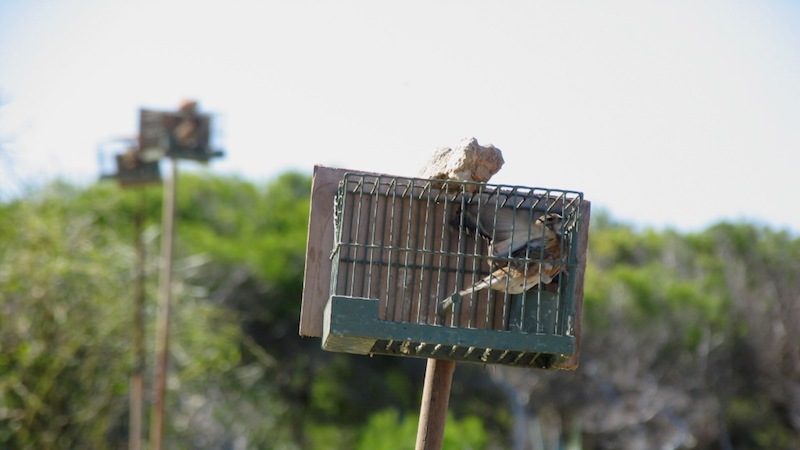A crackdown on an organised network responsible for the illegal trafficking of tens of thousands of protected birds has again led to Malta, but while the Italian ring has been prosecuted and sentenced to jail the Maltese authorities have yet to act.
In December 2018, a court in Reggio Calabria found eight people guilty of conspiracy to carry out illicit wildlife trading activities and of fencing stolen property. They were handed jail sentences totalling 20 years, with 70-year old Francesco Repaci (the “boss”) facing the longest term – four years, according to court documents.
The indictment identified Albert Satariano, 65, as “one of the most prolific Maltese buyers of finches”. Evidence of links between Repaci and Satariano was presented in court, including intercepted conversations between the two.
They include a discussion in November 2016 between Satariano and Repaci’s son, Pasquale, about “a receipt” in which Repaci listed “840 serins, 570 goldfinches…110 greenfinches… 20 linnets”.
The details were revealed in a report by National Geographic on wildlife crime in Italy and Malta, that followed hot on the heels of recent findings of an alleged racket in the trading of Bluefin tuna in which the Head of the Fisheries Department was accused of taking bribes from one of the biggest operators in the Mediterranean.
Satariano told National Geographic that he found out about the allegations by the Italian investigators only after he was contacted for the story. He denied any wrongdoing, saying that he bought the birds from Repaci in Malta, and he was unaware of the scam. He also said Repaci was “an old friend”.
Crime pays
Italian poachers trapped the protected birds to meet the demand from Maltese wholesalers through orders placed with “the boss” Repaci. Investigators discovered that the network then relied on vets to place a ring around the birds’ legs and to provide documents falsely stating that the birds were bred in captivity, according to findings by the Italian police.
The finches arrived in Malta stashed in plastic containers in modified vehicles with double bottoms on board the ferry from Pozzallo. This occurred several times a year, court documents show.
Apart from the intercepted calls between Satariano and Repaci, investigators cross-checked passenger lists from the Malta ferry with tolls booths on highways. “Police say that whenever Satariano travelled to the port of Pozzallo, vehicles belonging to the smuggling groups were detected there,” according to National Geographic which lays out the details in an article on wildlife crime in Malta and Italy.
The report also states that Satariano strongly denied his involvement in the crime, saying he was “never aware the birds came from an illegal source”.
The police wiretapped another conversation in which Satariano and Repaci allegedly spoke of difficulties of getting the protected birds to Malta because of checks by Italian customs officials.
“High profits, huge local demand and a very low risk of getting caught make Malta a paradise for criminals dealing with contraband birds,” the spokesperson for environmental NGO Committee Against Bird Slaughter (CABS) Axel Hirschfeld told The Shift.
“The Italian police have presented clear evidence that Maltese persons ordered thousands of contraband finches from Italian criminals and that several such shipments have reached Malta in the past. The fact that the Maltese police did not make any arrest related to this case shows that they are either not able or not willing to deal with such a huge case of wildlife crime,” Hirschfeld added.
CABS reiterated its call for the establishment of a professional wildlife crime police unit within the Malta Police Force.
What’s the big deal?
Malta had committed to banning finch trapping when it joined the EU and the country was given a transitionary period to phase it out.
In that period, Malta was supposed to introduce a project that would raise birds for trapping bred in captivity, but this failed. The birds caught from the wild now being trafficked to Malta are protected under the EU Birds Directive.
Governments have pandered to the hunting and trapping lobby since Malta joined the EU even though trapping was clearly outlawed under EU rules. Finch trapping had been phased out, but it was later reintroduced after the Labour Party swept to power.
In June 2018, the European Court of Justice ruled that Malta had breached the directive by introducing too many exemptions and by failing to carry out adequate enforcement activities.
The European Commission had said in a statement following the ruling that there was no justification for finch trapping in Malta: “Finches are strictly protected under the EU Birds Directive. Malta had to end finch trapping by the end of 2008 after a transition period it had negotiated when acceding to the EU had expired. The Commission now expects Malta to fully respect the Court’s judgement and to stop this practice once and for all”.
Reports by Birdlife Malta and CABS show, year after year, that law enforcement authorities are ill-equipped to tackle wildlife crime within the framework permitted by the government.
In the latest case exposed, Italian investigators spoke of a lack of cooperation from the Maltese authorities, saying they were unable to proceed against Satariano without their assistance. Satariano continues to deny the allegations.













